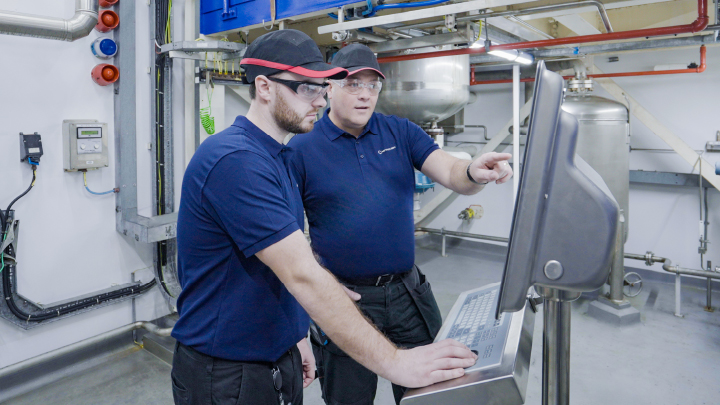


Technology Transfer
Working alongside the laboratory development teams the Pilot Plant team have a well developed and demonstrated set of workflows for effective, right first time, transfer of processes from lab scale to pilot scale and into process validation & commercial launch.
The team of highly experienced experts with record of successful transfers across the lifecycle from Lab to Plant and into commercial manufacture includes Process Supervisors who have a wealth of experience and proven ability to take molecules from lab to market. A dedicated process supervisor (MSc graduate or PhD) is allocated to each project and acts as the single point of contact for a project, with support through the entire project lifecycle.
Typical Process Chemistries:
The Pilot Plant has run Enzymatic Reactions, Flow Processes and numerous Cross Coupling Reactions (Suzuki, Sonogashira, Ullman etc) at very low levels of oxygen.
The Pilot Plant operates under a Multi-Product Protocol (MPP) as agreed with the environment agency. The types of chemistry listed on the MPP are given below, although it is noted within the protocol that this list is not exhaustive:
Acylation, Addition, Aldol reactions and condensations, Alkoxylation, Alkylation and dealkylation, Amidation, Amination and deamination, Catalytic hydrogenation, Carbonylation, Carboxylation, Chlorosulphonation, Cond cleavage, Cross coupling reactions (Suzuki, Sonogashira, Ullman etc), Diazotization, Deprotections, Deprotonation, Electrophilic substitution and addition, Epoxidation, Esterification, Formylation, Halogenation and dehalogenation, Hydrolysis, Isomerization, Nitration, Nitrosation, Organometallic reactions, Oxidation, Phosphorylation, Protonation, Reduction, ring cleavage, expansions and closures, Silylations, Sulphonation and Sulphonylation